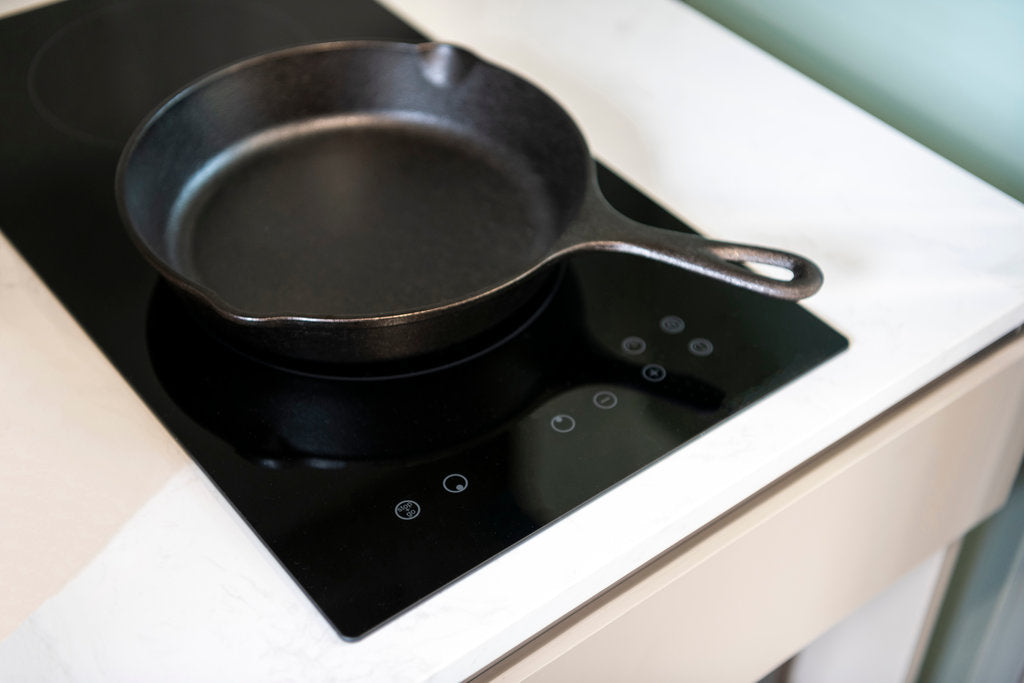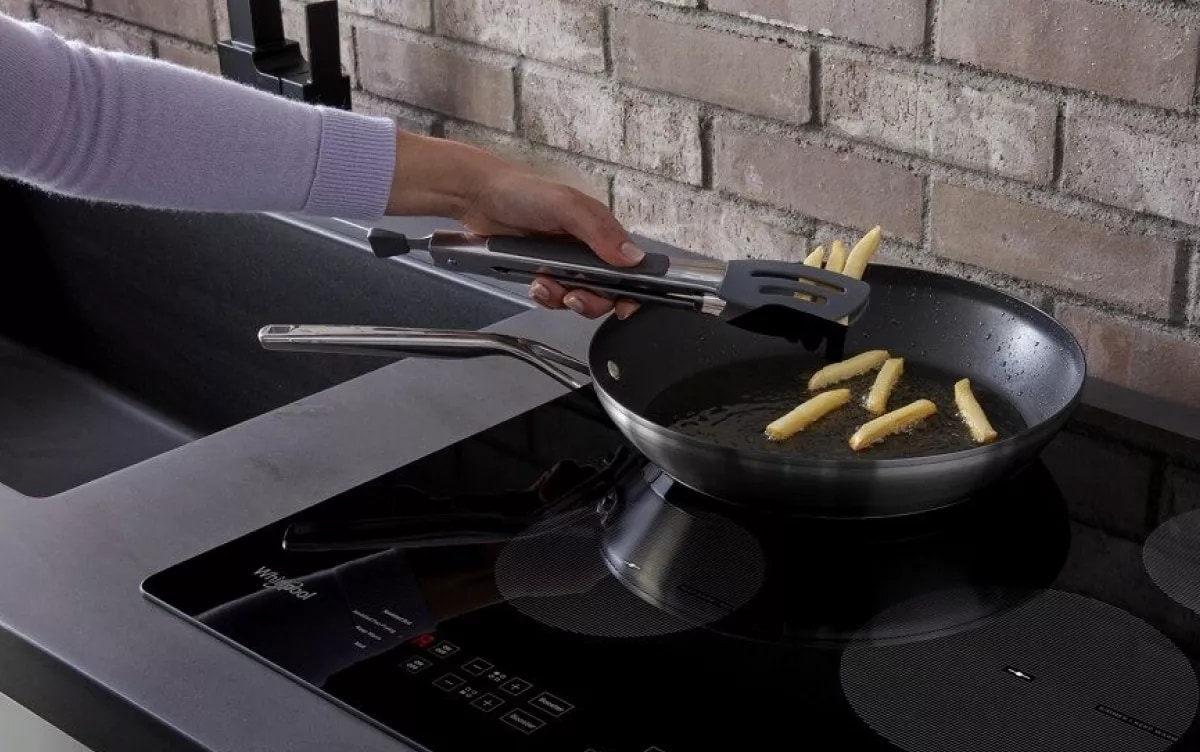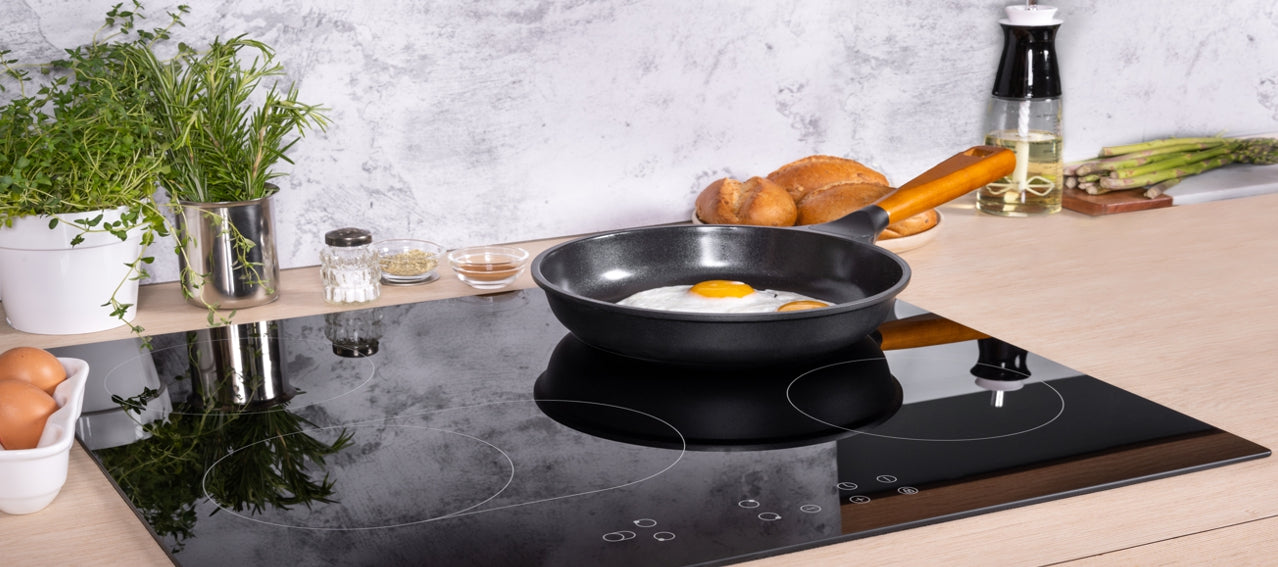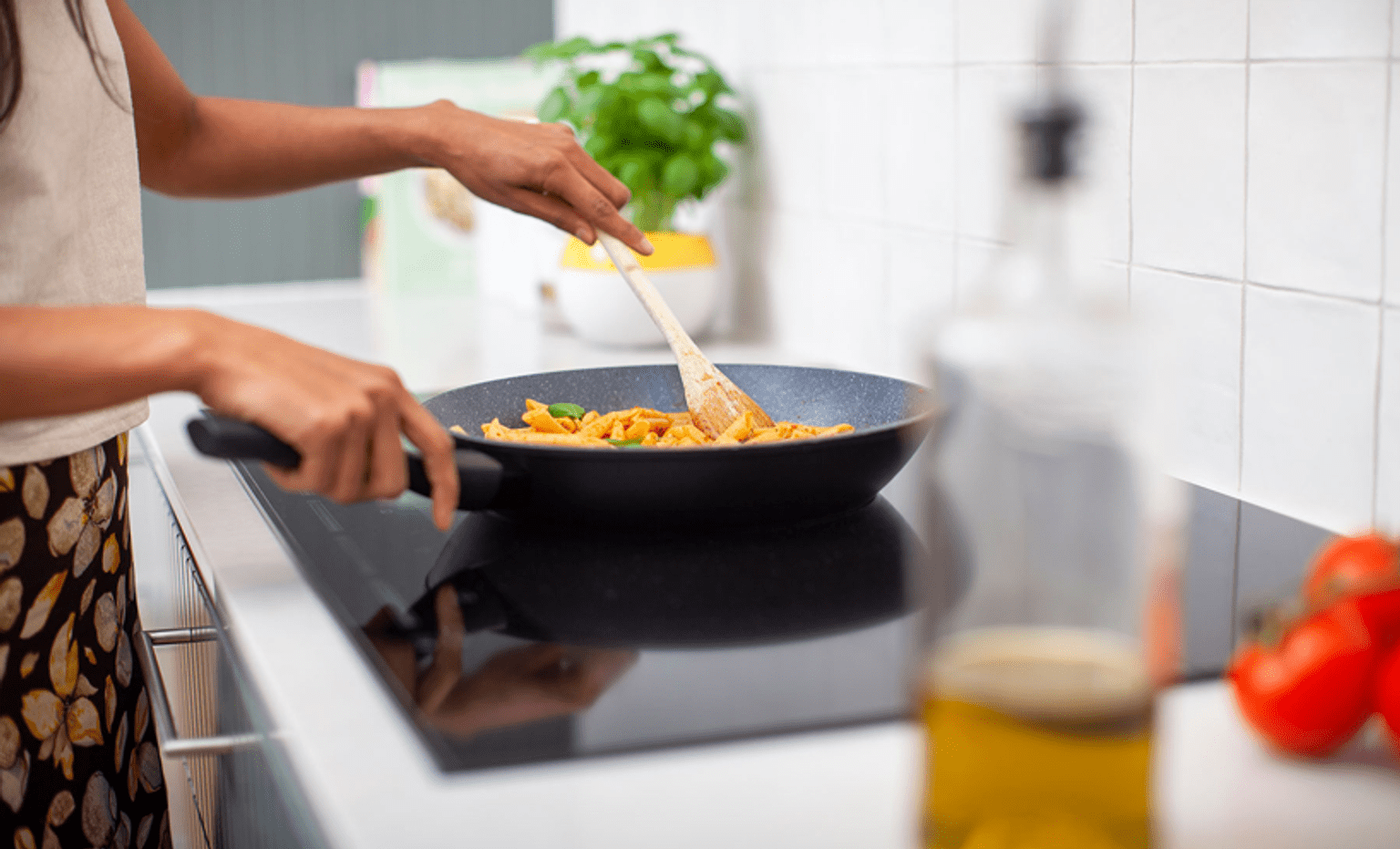For kitchen professionals, utilizing cast iron cookware on induction cooktops serves as both a boon and a challenge. While the induction cooking method provides a contemporary aesthetic and efficient heat distribution, it also brings up concerns regarding its compatibility with cast iron pans, specifically regarding scratching the delicate glass surface.
This detailed guide aims to uncover the risks tied to cast iron scratching induction glass and suggest effective ways to prevent such damage. Our goal is to arm kitchen professionals with essential knowledge to keep their cooktops immaculate while enjoying the advantages of cast iron cookware.

The Magnetic Match of Cast Iron and Induction
Induction cooktops have garnered popularity for their efficiency and speed. They utilize electromagnetic fields to directly heat pots and pans instead of warming the cooktop surface. This characteristic necessitates cookware with a magnetic base, positioning cast iron as a favored option for many chefs. However, the weight and sometimes coarse bottoms of cast iron pans raise valid worries about scratching the glass surface of induction cooktops.
When employing cast iron on an induction cooktop, the magnetic field heats the pan directly, making it ideal for fast and uniform cooking. Nevertheless, any sliding motion of the cast iron pan over the glass can lead to scratches, which is particularly troublesome for those in the culinary field who appreciate both the aesthetics and functionality of their kitchen equipment.
Proven Strategies to Prevent Scratching
Maintain Clean and Smooth Cooktops
To avoid scratches, keep both the cooktop and the base of the cast iron pan clean and dry prior to use. Even tiny bits of dirt or debris can cause noticeable scratches if trapped between the pan and the glass.
Implement Protective Barriers
Consider placing a thin sheet of parchment paper or a silicone mat between the cast iron pan and the cooktop. This barrier can mitigate direct contact and thereby reduce the risk of scratches. Ensure that the materials used are heat-resistant and safe for culinary environments.
Lift Instead of Slide
When relocating cast iron cookware on an induction cooktop, prioritize lifting the pan rather than sliding it. Sliding is the primary culprit for scratches, so cultivating this simple practice can noticeably prolong the life of your cooktops surface.
What to Do If Scratching Occurs
If your induction cooktop does develop scratches from cast iron, there are methods to lessen the visibility of the damage. Many kitchen professionals suggest using a non-abrasive cleaner specifically formulated for glass surfaces. This may help polish out minor scratches and restore some of the cooktop's original sheen.
For more severe scratches, consulting the manufacturer's directions or a professional repair service could be required. Addressing these issues swiftly is crucial to prevent further damage and any adverse effects on the cooktop's efficiency.
Is Cast Iron Worth the Risk?
Many kitchen professionals laud cast iron for its durability and excellent heat retention. Despite the potential scratching risks, the advantages of using cast iron on induction cooktops typically surpass the downsides. By adopting the preventive measures outlined above, chefs can enjoy a high-performing kitchen setup without sacrificing aesthetic appeal.
For further insights about the compatibility of cast iron with induction cooktops, be sure to check out this insightful article on Homes and Gardens.
Additional Resources for Kitchen Professionals
If youre keen to delve deeper into the intricacies of cast iron and induction cooktops, Packing Platters offers great insights. Additionally, Serving Food provides practical tips to enhance your service. For foundational knowledge, check out Preheating Plates as well, as it can be invaluable in optimizing your cooking experience.

FAQ
Can I use cast iron on all induction cooktops?
Absolutely, cast iron is compatible with all induction cooktops thanks to its magnetic properties. However, its essential to take precautions to prevent scratching the glass surface.
What are the benefits of using cast iron on induction?
Using cast iron on induction cooktops ensures exceptional heat retention and distribution, making it great for a wide range of cooking techniques.
How can I repair scratches on my induction cooktop?
Minor scratches can often be smoothed out with a non-abrasive cleaner made for glass surfaces. For more acute scratches, professional repair might be necessary.





Leave a comment
This site is protected by hCaptcha and the hCaptcha Privacy Policy and Terms of Service apply.